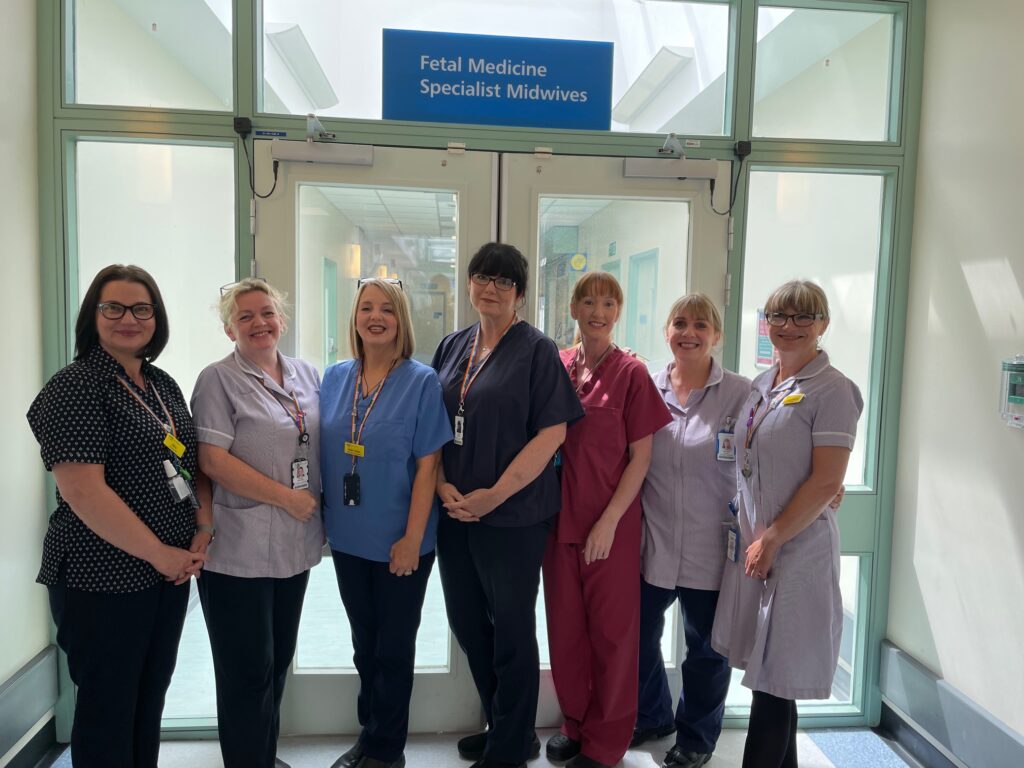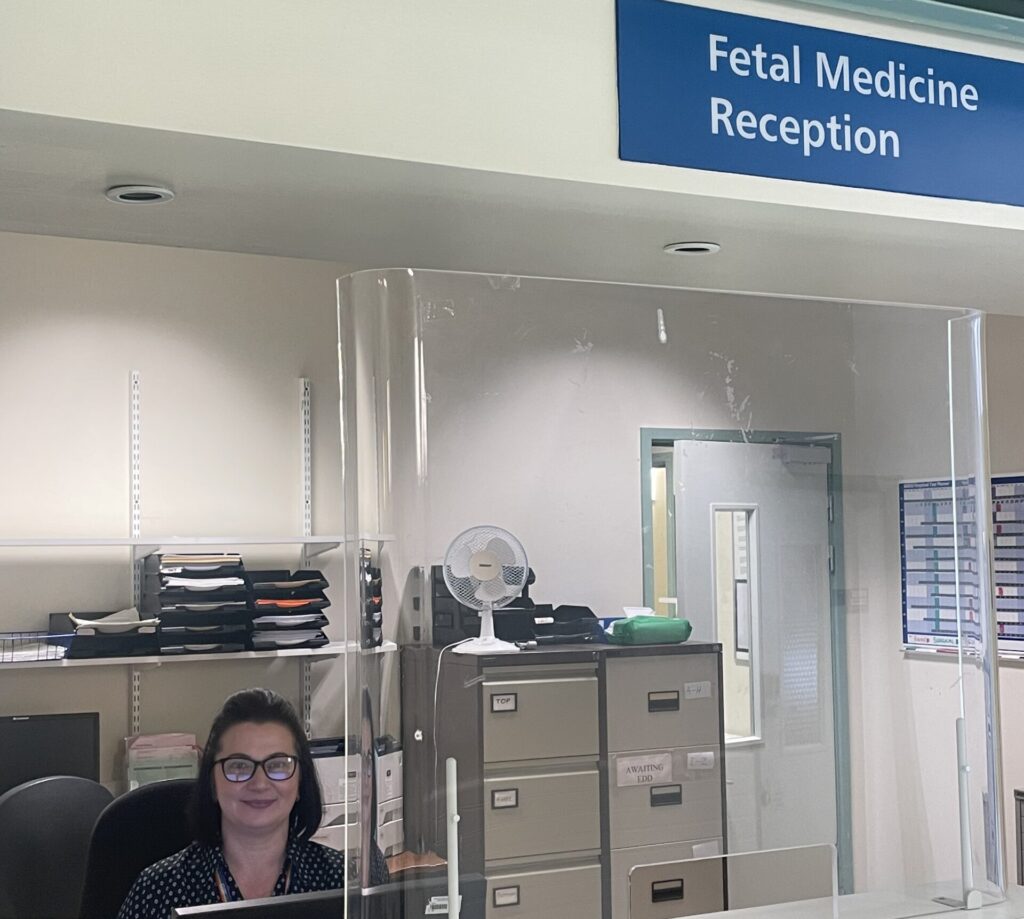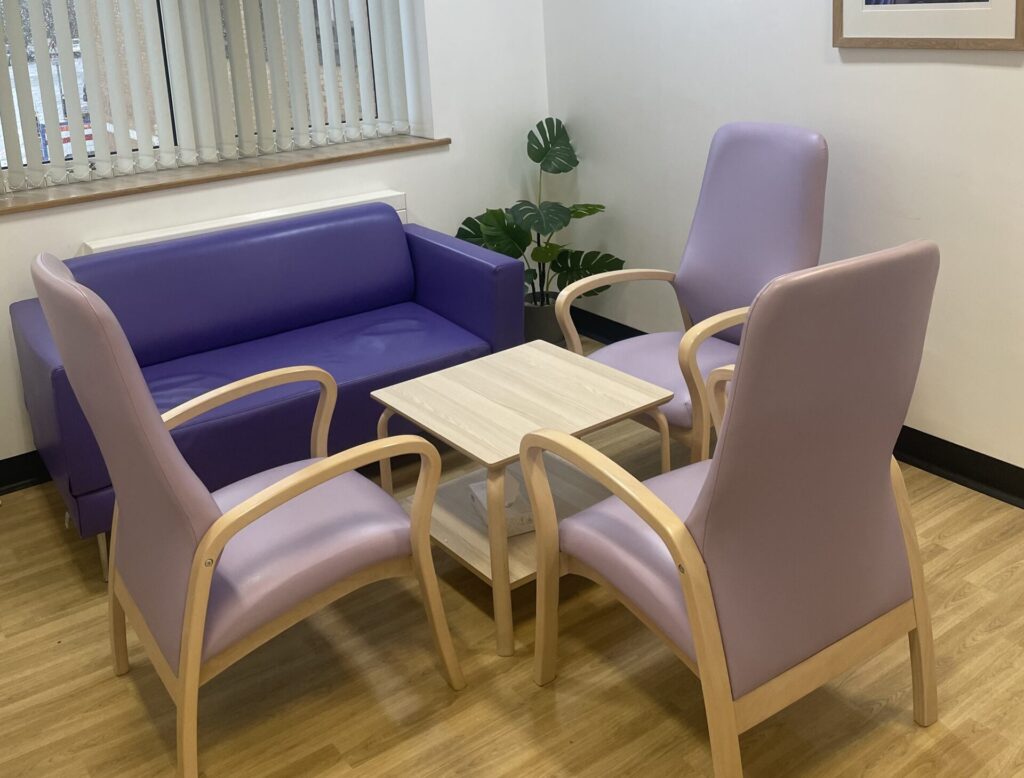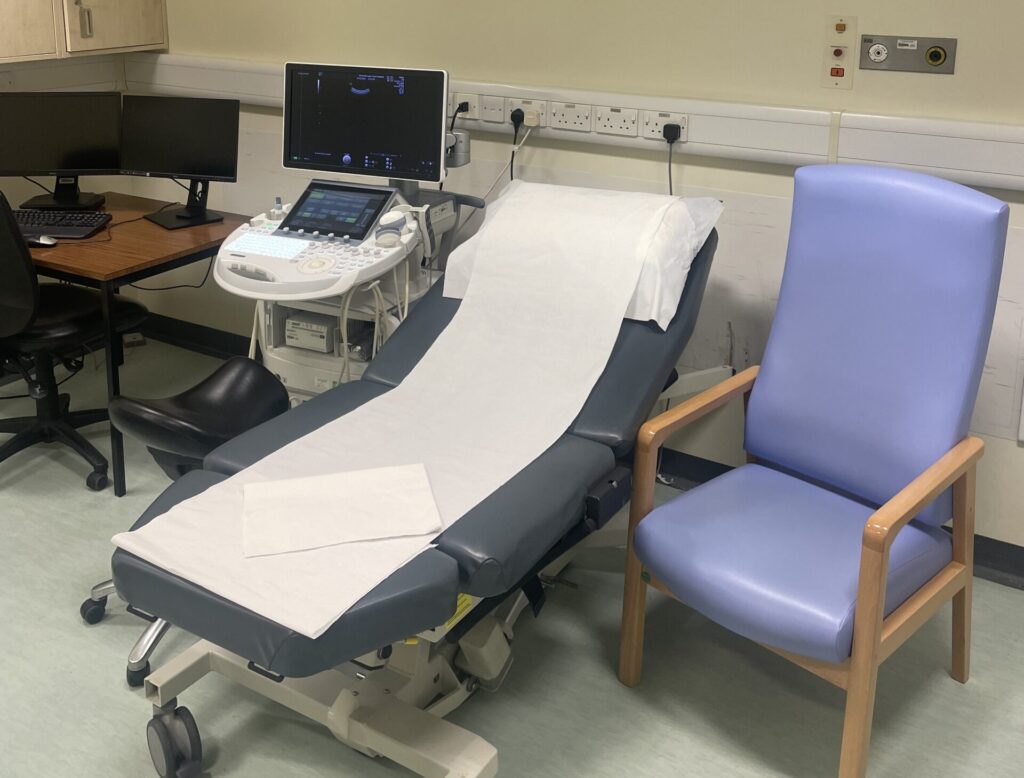Our fetal medicine unit cares for those with high risk pregnancies and babies.
On this page
Who are we
The Fetal Medicine Unit (FMU) is led by a team of highly skilled specialist consultants and doctors that offer diagnosis and treatment of complications which may arise in unborn babies. Midwives form part of the team within FMU and are available for routine and specialist midwifery advice and support whilst you have care within FMU. Our dedicated Maternity Support Workers and administration staff support the running of the department.
We aim to provide the highest standard of care in a professional, calm and supportive environment.
Our multidisciplinary team (MDT) approach ensures we offer individualised care for pregnant people and their families, when there is a concern for the health of an unborn baby.
We work with consultants and nurse specialists from clinical genetics, neonatology, paediatric surgery, paediatric cardiology, paediatric neurosurgery, paediatric neurology and paediatric nephrology.
The unit is one of 15 specialised fetal medicine centres across the country. We provide care to pregnant people and their families who live within the North East and Cumbria region.

What do we offer
We operate a weekday service. The Fetal Medicine Unit provides comprehensive care throughout pregnancy in the diagnosis and management of all fetal conditions.
Our Neonatal Intensive Care Unit, Paediatric Surgical Unit and Children’s Heart Unit are recognised centres of excellence and allow us to offer unrivalled antenatal and postnatal care.
- Offer expert ultrasound in the confirmation and diagnosis when concerns have been raised over unexpected findings on your routine antenatal ultrasound scan
- Provide information, support, referral and signposting to relevant services
- Offer a range of tests to support diagnosis
- Liaise with your local hospital to enable appropriate care to be provided
- Arrange delivery for those babies likely to require specialist care after birth
- Undertake specialist procedures, such a fetal blood transfusions where necessary
- Assess multiple pregnancies (twins and triplets) for possible complications and provide onward referral to other specialist centres
The Royal Victoria Infirmary is a teaching and training hospital, there may be visiting doctors, medical students and student midwives. If you feel uncomfortable with this please let the fetal medicine team know.
Whilst every effort is made to see you on time, due to the nature of clinic, we may experience delays. You will be kept informed of when you are likely to be seen.
We understand that you may be anxious about you appointment and would encourage you to contact us and speak to one of our midwives. It is also important to maintain your routine community midwife and local maternity team appointments.
What to expect from your appointment
You are welcome to bring another adult with you. On the day of your appointment, please attend the Fetal Medicine reception desk at your allocated appointment time where we will register your attendance.

You will be greeted by a member of the team and welcomed to one of our recently refurbished private rooms for a consultation prior to your scan.

We will then accompany you to the scan room where your ultrasound scan will be undertaken by a Fetal Medicine Consultant and / or member of the Fetal Medicine team.

After the scan, you will have the findings explained and given time to ask questions. We will discuss all relevant options for you, and together, a personalised plan of care will be made.
Whilst every effort is made to see you on time, due to the nature of clinic, we may experience delays. We aim to keep you informed of when you are likely to be seen.
Specialist clinics in fetal medicine
What tests may be offered?
The most common investigations that we offer are an amniocentesis or a chorionic villus biopsy. These tests involve having a needle passed into the womb to take a sample to enable genetic tests to be undertaken on your baby, if you wish.
1. If you have been offered an invasive test because you have a family history of a known genetic condition, you may find this video helpful
This video is also available in Arabic, Romanian, Polish, Punjabi and Urdu.
Corresponding written information can be found in the resources section.
2. If you have been offered an invasive test because you have received a higher chance result of having a baby with a genetic condition after an antenatal screening test, you may find this video helpful
This video is also available in Arabic, Romanian, Polish, Punjabi and Urdu.
Corresponding written information can be found in the resources section.
3. If you have been offered an invasive test because there has been an unexpected finding on your ultrasound scan that may be associated with a genetic condition, you may find this video helpful.
This video is also available in Arabic, Romanian, Polish, Punjabi and Urdu.
Corresponding written information can be found in the resources section.
Various blood tests are commonly offered, your Consultant or fetal medicine midwife will discuss these in detail with you if they are deemed relevant to your care.
Fetal MRI (magnetic resonance imaging) allows detailed imaging of your unborn baby or placenta when the ultrasound scan has detected a problem or there is a family history of previous problems. MRI is used to obtain images that complement the ultrasound images and are used to work out what the problem and likely outcome is. The MRI scan is deemed safe during pregnancy.
Patient information leaflets
- Prenatal invasive testing where there is a family history of a known genetic condition
- Prenatal invasive testing a higher chance screening result
- Prenatal invasive testing following an unexpected finding on your ultrasound scan
You can find more information in the fetal medicine resources section of this website
How to find us
Royal Victoria Infirmary
Level 4
Leazes Wing
Richardson Road
Newcastle Upon Tyne
NE1 4LP
Contact us
Telephone: 0191 282 5837
